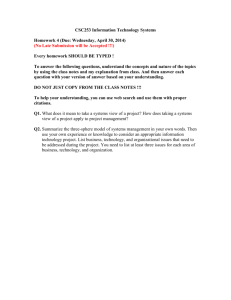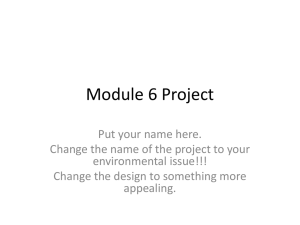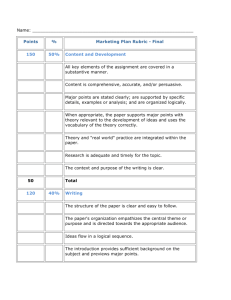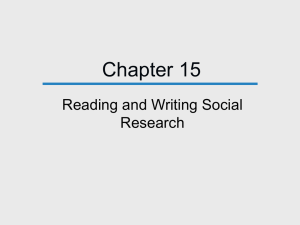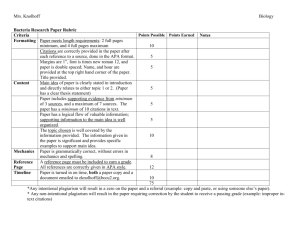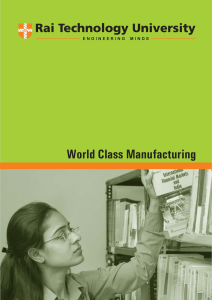Institutional differentiation and the search for excellence in HE
advertisement
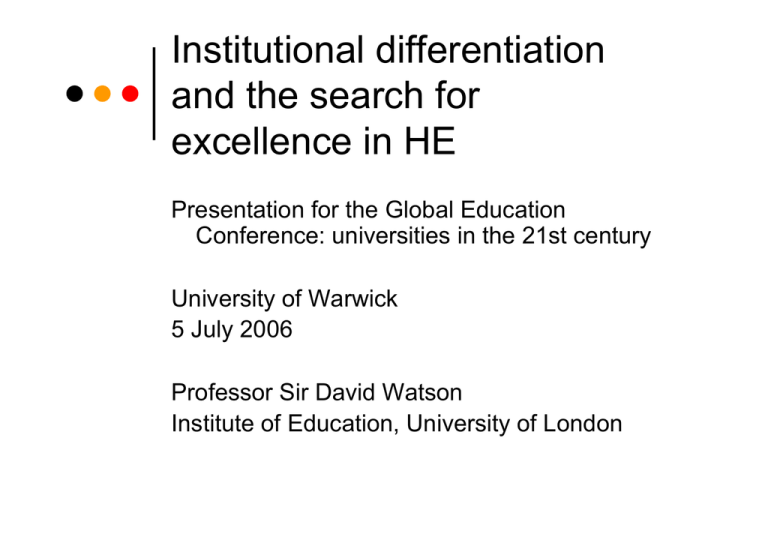
Institutional differentiation and the search for excellence in HE Presentation for the Global Education Conference: universities in the 21st century University of Warwick 5 July 2006 Professor Sir David Watson Institute of Education, University of London Can we all be world class? A standard A race What makes a university world-class? The objective score board The subjective beauty contest “Webometrics” Shanghai Jiao Tong: 2004 and 2005 Alumni prizes Staff prizes Highly cited researchers Science citations Soc. Sci./Humanities citations Adjustment for size 10% 20% 20% 20% 20% 10% THES 2005 Peer review Employer ratings Citations per FTE staff SSR International staff International students 40% 10% 20% 20% 5% 5% League tables Whole institutions Subjects What makes university world class? Research Media image Graduate destinations Infrastructure International “executive” recruitment Gaps Teaching quality WP and social mobility Services to business and the community Rural interests Other public services Collaboration The public interest New York University In determining its priorities, NYU opted not to break the bank with investments in big science, focusing instead on some of the professional schools and liberal arts departments. The most dramatic transformation came in philosophy….In 1995, the university lacked an accredited Ph.D. program in philosophy; five years later, it was ranked number one (Kirp, 2005). Who cares? Governments World class institutions World class aspirants Consumers Newspapers and magazines The public interest State-making Society-making “Dangerous knowledge” (Daxner, 2004) The Truth About Markets This book is about the institutions that define our economic lives. It will become apparent that it is not just economic institutions which matter. Economic institutions function only as part of a social, political and cultural context. This is what I describe as the embedded market. (Kay, 2003:19). Dilemmas for the state “buying” world class influencing the judges “declaring” world class “managing” world class Dilemmas for the university Ambition and realism History Reflexivity Conclusion Developing the academic portfolio Institutional status and identity A world-class sector?
